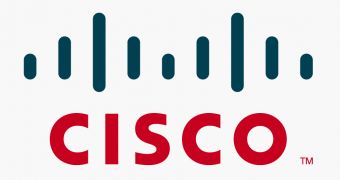A few years ago, Cisco made a daring incursion into the corporate telephony market, even though it had absolutely no experience in that area or even knowledge of how that market worked. Nevertheless, the world-class networking gear provider did rather well for itself, securing no less than 33% of the entire market. Currently, the company is focused on acquiring data-center construction contracts in order to take away some of the market share of veteran members such as Dell and HP, among others.
This effort is only several months old and Cisco already seems to be quite confident, claiming to be making significant progress. Cisco Systems Chief Executive John Chambers doesn't seem overly concerned with the caliber of the aforementioned big players on the data-center market, saying that this ambitious project is no different from the company's previous incursions.
"We've taken on big peers in the past," Chambers said at Cisco's financial analyst conference on Dec. 8. "We won't get 500 customers moving [to Cisco's vision] tomorrow in the data center. But we will get a couple of dozen. And if that goes well, we'll get the next hundred, and then a thousand."
The total worth of the data-center market is estimated at around $40 billion and analysts dubbed Cisco's project not just ambitious, but also rather risky. Still, the networking provider believes itself to be more than ready for the challenge, even disclosing the fact that it already managed to score several $20 million deals for its Unified Computing System, or UCS. The UCS turns the network into the most important part of a data center, and more than 100 companies are using it.
Cisco's servers seem to focus on cost saving, but somehow still manage to provide large amounts of memory, disaster-recovery backup possibilities and efficiency solutions. Terremark, for instance, is using UCS servers to shift jobs between various data centers around the world and Tutor Perini (TPC) revealed that it managed to combine five data centers into one, reaching only 22 servers compared with the 480 that it had in the past.
Cisco has an advantage in the way it designs its servers. Each one has high-speed connections to Cisco's network switches, allowing networks to automatically detect how network traffic should be routed. Cisco machines are less complex and need fewer IT staff members to run properly. And because most of the computing tasks are done within the actual server itself, companies such as ExamWorks don't have to spend large amounts of money on powerful platforms, being, instead, able to employ older PCs.
"It's a game-changer," Brian Denton, chief technology officer of Atlanta-based consultancy ExamWorks, added. "I call around to companies and ask for their old computers," which cost money to dispose of, Denton explained. Then he gave the employees a nice flat-panel display, keyboard, and mouse, "And they don't know the difference."
Cisco is confident that it will grow as a data-center solution supplier, considering that 70% of its customers returned for further deals. Nevertheless, Cisco will have to work especially hard in order to stand up to HP and IBM, which sell their own storage equipment and, along with Dell, have decades of history and experience in this domain.
Cisco still doesn't have all the resources needed to score a major leap in this market, of which the three aforementioned veterans, Dell, HP and IBM, control more than 75%. Still, if Cisco manages to enact its plan to grow by 15% every year, it will, according to some analysts, eventually become a strong presence.

 14 DAY TRIAL //
14 DAY TRIAL //